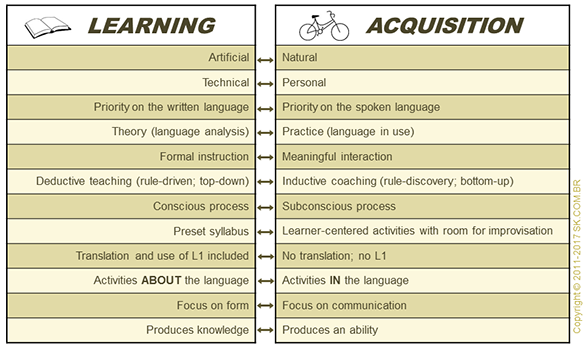I also think there is a socio-economic component to this. People who have access to use computers, tablets, or smartphones at home have more time to "play" and discover how to use various tools. However, there are both children and adults who are lacking in this free time to discover and learn new technology. As a teacher of emergent bilinguals, especially in an inner-city neighborhood, I have seen this first hand. I have had new arrival students who are expected to keep up with a demanding online curriculum in English, when they have never seen or used a real keyboard before. Not all children are growing up exposed to this technology revolution, some are struggling to keep up just as much as their parents are. Here is an infographic that shows some of the digital divides between who uses the internet and how.
Finally, although I don't feel like being a digital native vs a digital immigrant it is as simple as age, there is a relationship between the terms and how people are able to relate to digital technology and media. I do feel as though learning about technology is learning a new culture. There is a lot of language that is unique to various forms of technology and coding, and there is a new communication system. A friend of mine comment recently on how an older woman said look at those kids just looking at their phones and not communicating, but what she didn't know was that they were texting and sending pictures and communicating in a way that was completely different to her. So I think there is a lot of communication barriers between the new and the old ways of doing things, and there is a lot to be learned.

I agree with your point you made about there being a socioeconomic component to this. I definitely see the disparity within my classes. Students who have access to a smartphone and internet at home are much more tech savvy when it comes to making graphs or inserting pictures in lab reports, etc. and some students truly struggle. You're right about those who have time to play and discover are much more advanced in the digital world.
ReplyDeleteI picked up on the point you made about older (or maybe other not so old) people commenting on how kids don't communicate due to being on phones all the time, but for myself with 3 young kids, I for one appreciate that level of communication. I am in school with lots of commotion all day. When I come home and the kids come home from school.... we all have some quiet/down time where we snack quietly on our phones/computers, etc.... catching up and reducing our stress levels.... then I talk verbally with each of them separately one on one....later on. I don't think it's completely replacing communication like lots of people think. It might, however, leave some people out who might not be incorporating the technology, and thereby losing some disconnected. Efforts need to be made obviously if there is an elderly person perhaps who might not be able to share in that way..... otherwise I am on board with the dual or multi communicative options!
ReplyDeleteI agree, I absolutely think conversations are important, and I have definitely been guilty of thinking the same thing. I just meant that people should try to be more open to other means of communication and not assume that others are just checked out.
Delete